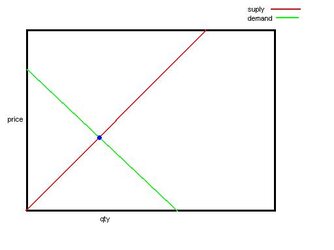- Joined
- Apr 26, 2004
- Location
- The Netherlands
http://www.overclockers.com/tips00785/
I couldn't have said it better. It is what happened with the A64 at first, and it seems it is happening here again. Yes, AMD dual cores 'pwn' the intel counterparts. But the marketing is killing them. Marketing is the art of convincing people to buy your product. It involves the product itself, advertisement and pricing.
The latter is killing them.
No matter how good it is, it is this pricing that will make people fall back to cheaper alternatives. No, not Pentium D (at least not for awhile), but the A64 and Sempr0n come to mind. Chips that AMD sells alot more of, with alot smaller profit margins.
Instead of the marketing, i hope it is the old tale of "we can make them, just not awhole lot of them", because in that case, AMD isn't all to blame.
I couldn't have said it better. It is what happened with the A64 at first, and it seems it is happening here again. Yes, AMD dual cores 'pwn' the intel counterparts. But the marketing is killing them. Marketing is the art of convincing people to buy your product. It involves the product itself, advertisement and pricing.
The latter is killing them.
No matter how good it is, it is this pricing that will make people fall back to cheaper alternatives. No, not Pentium D (at least not for awhile), but the A64 and Sempr0n come to mind. Chips that AMD sells alot more of, with alot smaller profit margins.
Instead of the marketing, i hope it is the old tale of "we can make them, just not awhole lot of them", because in that case, AMD isn't all to blame.
